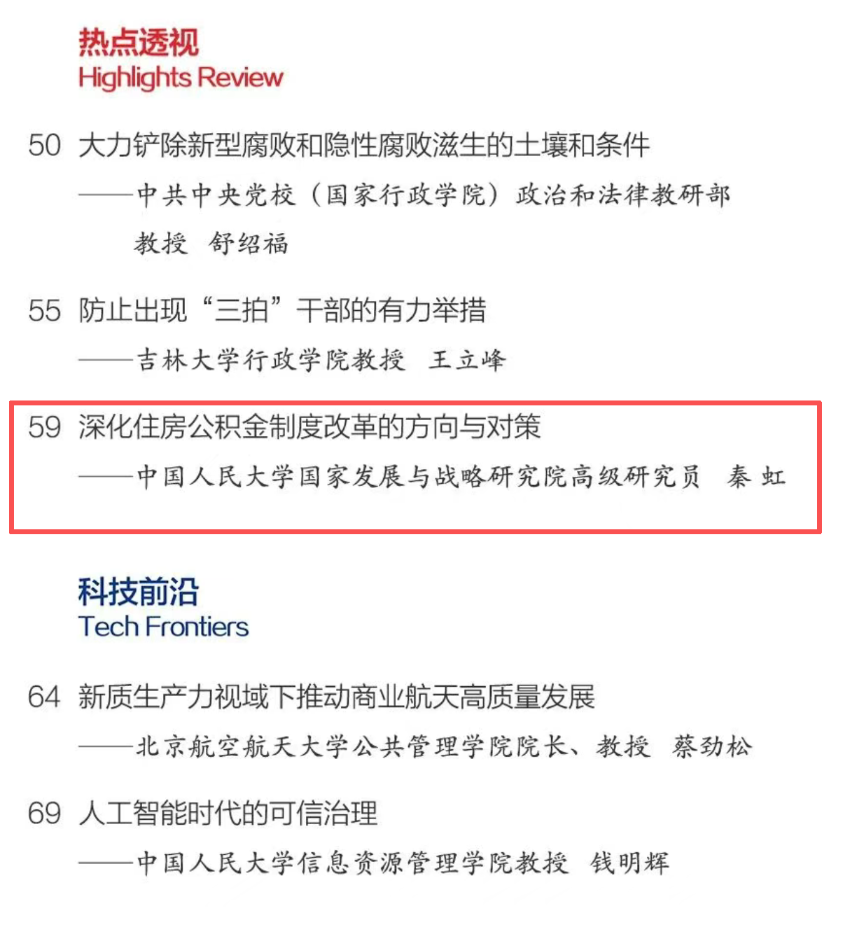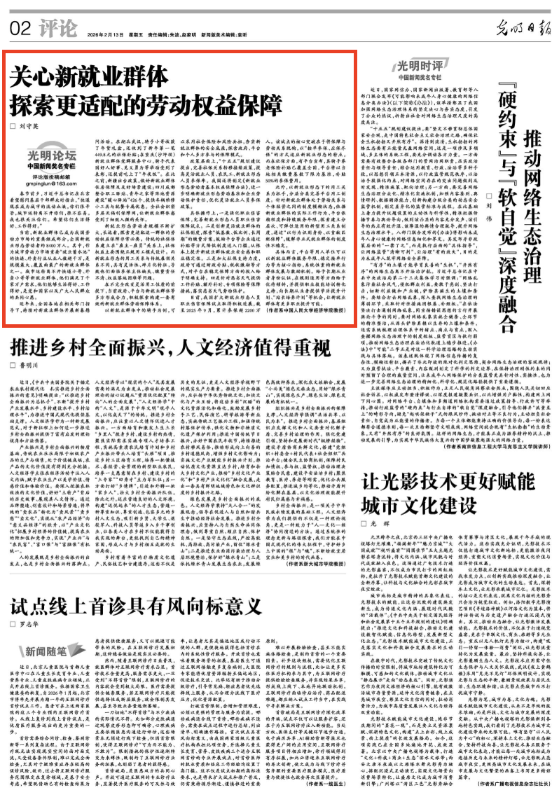[CGTN]Experts on China's new five-year plan: Anchor of stability, confidence
发布时间:2025-10-27The 20th Communist Party of China Central Committee adopted the recommendations for formulating the five-year plan at its fourth plenary session this week. A communique released after the plenum outlined how the world's second-largest economy will advance its economic and social development over the next five years.
According to the communique, China aims to make significant advancements in high-quality development, enhance self-reliance and strength in science and technology, promote the development of new quality productive forces and build a modernized industrial system.
Experts have shared their insights on some of the new changes mentioned in the recommendations and what the blueprint means to global development.
In terms of strategic positioning, the 15th Five-Year Plan marks the entry of China's modernization process into a critical stage that connects the past and the future, Xia Lu, research fellow at the National Academy for Development and Strategy of Renmin University of China and deputy dean of the School of Marxism Studies at Xinjiang University, told CGTN during an interview.
Compared to the 14th Five-Year Plan period (2021-2025), the 15th Five-Year Plan period (2026-2030) is positioned as a "critical period for reinforcing the foundations and pushing ahead on all fronts" to achieve socialist modernization by 2035, Xia noted. "This highlights the urgency and decisive significance of the work in the next five years."
Regarding the development principles, the core change is to take "high-quality development" as the overwhelming core principle and to elevate "coordinating development and security" to an unprecedented strategic height, making it an independent and fundamental principle, he said.
In terms of industrial policy, the recommendations not only continue to emphasize the upgrading of industrial bases and the modernization of industrial chains, but also pursue "smart, green, and integrated" development – demonstrating China's determination to strengthen the real economy, Xia said.
On opening up, the recommendations have emphasized to "expand opening up at the institutional level," which indicates that China's opening-up priorities are moving beyond the flow of goods and production factors toward greater alignment with international rules, regulations and standards at the institutional level, he said.
A particularly innovative expression is the idea of valuing not only the "Chinese economy" but also the "economy of Chinese people." This reflects a broadened development perspective, signaling a more expansive and outward-looking vision, Xia said.
Peng Lei, associate research fellow at the Institute of Economics of Chinese Academy of Social Sciences, told CGTN that the guiding principles for economic and social development during the 15th Five-Year Plan period are both the accumulation of previous experience and the theoretical summary of previous practice – principles that "must be followed."
Peng said adhering to innovation-driven development and unswervingly strengthening the real economy will be key to making decisive progress toward basically realizing socialist modernization. All other tasks are designed to safeguard and support this core objective, he stressed.
In the face of a profoundly complex and changing development environment, how to eliminate external disruptions and guard against external shocks will be a key area of focus, he said.
Stressing the importance of maintaining strategic resolve, bolstering confidence, ensuring both development and security, and writing a new chapter in the "twin miracles" of rapid economic development and long-term social stability, he urged the need to anticipate various risk scenarios and implement a series of policy measures to ensure and safeguard the country's economic and social development – efforts that merit close attention and high expectations.
Speaking about what the 15th Five-Year Plan means to global development, Xia said the plan will have a profound impact on global economic development, especially the modernization process of the Global South.
Through consistent strategic planning, China will continue pursuing high-quality development while maintaining steady economic growth, serving as a "stabilizer" and "ballast" for global economic growth, he said.
At a time of rising protectionism, the recommendations' emphasis on "steadily expanding institutional opening up" ensures that China's vast market will continue to generate opportunities for the world. "This sense of resolve and resilience provides a source of stability and confidence for the recovery of global trade and economy," he said.
More importantly, the recommendations offer new insights and practical support for Global South countries seeking their own paths to modernization, Xia said.
At the practical level, China's focus during the 15th Five-Year Plan period on developing new quality productive forces – such as new energy vehicles, photovoltaics and the digital economy – enables the country to provide more advanced and affordable technologies and solutions to the Global South, he said.
In addition, China will further deepen South-South cooperation through multilateral platforms such as the BRICS mechanism and the Belt and Road Initiative during the period. This effort goes beyond infrastructure and capacity cooperation – it also aims to help Global South countries better integrate into global industrial and supply chains, jointly promote a fairer and more equitable international economic governance system, and strengthen the collective voice of developing countries in global economic affairs.
Peng said the recommendations once again demonstrate to the world the robustness and predictability of Chinese modernization.
The 15th Five-Year Plan signifies that as China pursues its own high-quality development, it is also sharing development opportunities, offering viable solutions, and deepening pragmatic cooperation, playing an increasingly confident and constructive role in shaping the future world economic order. He added it provides the Global South with a new model of modernization path that emphasizes strategic autonomy, technological empowerment and mutual benefit – an approach whose impact will be both far-reaching and enduring.
原文链接:[CGTN]Experts on China's new five-year plan: Anchor of stability, confidence





